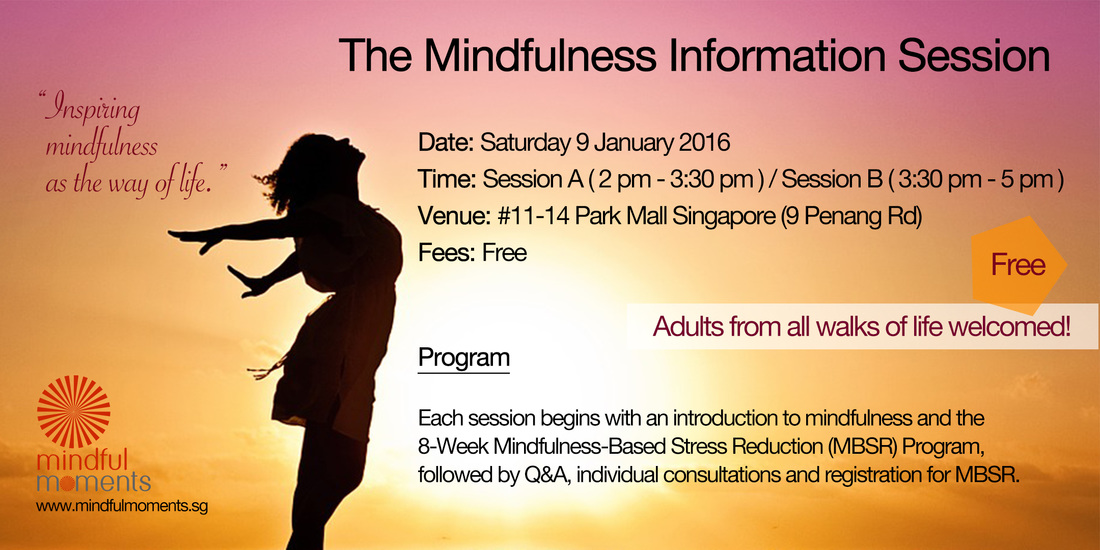|
Suffering is a part of life. Or is it?
There is a common saying that "pain is inevitable, but suffering is optional". We are constantly faced with challenges and struggles that may bring us pain, but this does not mean that we have to keep suffering from the pain. Suffering can range from traumatic experiences, extreme or chronic stress, to depressive moods, anxiety and other unpleasant emotions. As long as there is unrest, unease, dissatisfaction or turbulence within ourselves, we can be fairly certain that suffering exists. And we usually have no issues identifying the existence of suffering. In mindfulness practice, we are working towards minimizing this suffering by gaining a deeper understanding of why suffering exists. Suffering happens when we are unsatisfied with our circumstances and feel compelled to change them, despite things being out of our control. When we meet with an unpleasant situation we don't like, we develop an aversion or rejection towards the experience. Thoughts develop: No, it shouldn't be this way, this can't be happening to me; emotions like anger, resentment, disappointment, shame, and guilt arise. We begin to cling on to our thoughts and feelings; we ruminate and obsess, replaying and looping little scenes in our head. Likewise, when we encounter a pleasant situation, we are likely to develop an attachment towards what we like. We want it to happen to us all the time, and then we become afraid that it won't, or feel disappointed when it doesn't. We are afraid to let go, and when things do not happen according to our wishes, we refuse to accept reality. The concept of the second arrow is important for us to further understand our suffering. We are often involuntarily struck by a first arrow, causing some pain to us. But on top of feeling this pain from the first arrow, we have the tendency to automatically shoot a second arrow at ourselves, at that exact same spot, thus causing a much bigger and often unnecessary pain. We cannot stop the first arrow from being shot at us, but the second arrow is optional. That second arrow is suffering. Take for example, a loved one has forgotten to wish you on your birthday because they have recently been exceptionally busy. Naturally you feel disappointed, but because your habitual mind starts shooting the second arrow, you begin to think: I always remember his/her birthday, why doesn't h/she remember mine? S/he is losing interest; s/he doesn't love me anymore. Or perhaps your supervisor criticises the recent proposal you had drafted. Immediately, you feel an unpleasant sensation somewhere in your body, and a thought arises in your mind: My report is not good enough. And then you react to that thought with a follow-up of a string of thoughts: That must mean I'm not good enough. Can I really handle this job? I'm such a failure. Why can't I do anything right? Feelings of embarrassment, fear and anxiety may tag along with those thoughts, and the next thing you know, you are suffering. Mindfulness trains our mind to recognize both the first arrow and the second arrow we shoot at ourselves. This recognition allows us to create space around our thoughts and feelings; instead of reacting to them with the second arrow, we can choose to respond in a different way. With mindfulness practice, we learn that our thoughts and feelings are not us, and we do not need to identify with them. We learn to notice when we are telling ourselves stories and falling for those narratives. We learn to watch our thoughts and emptions come and go in the mind, and we cultivate a gentle, non-judgmental awareness towards the habitual nature of our mind. We learn to stop resisting and start accepting things the way they are. We learn to be okay with whatever that arises in our experience. But this does not mean that we give up hope, live indifferently or withdraw from improving our life. In fact, the awareness of our suffering and waking up to it, is by itself an improvement to our life. Instead of reacting impulsively, we are interrupting our negative habitual patterns to respond in a better way. Instead of feeling constantly uneasy, unsatisfied, unhappy with life, we are cultivating more calmness and making peace with ourselves. Learn how to wake up to suffering with the 8-week Mindfulness-Based Stress Reduction (MBSR) Program we offer.
0 Comments
The Mindfulness Information Session is organized by Mindful Moments Singapore to spread awareness of mindfulness and inspire mindfulness as the way of life. This will be a chance for you to answer any burning questions you may have about mindfulness.
The event is free and adults from all walks of life are welcomed to register and sit in. The talk will be conducted by Erin Lee, founder of Mindful Moments Singapore, Mindfulness Coach, Hypnotherapist and HypnoCoach® at Light On Life Singapore. Session A starts at 2 PM, and session B starts at 3:30 PM. Participants will only need to register for one of the sessions. For each session, Erin will begin with a talk about the background, development, applications and benefits of mindfulness as well as an introduction to the classic 8-Week Mindfulness-Based Stress Reduction (MBSR) Program. She will also bring participants through a short mindfulness practice as a group. Next, participants will be invited to ask questions about mindfulness and the MBSR program we offer. Last but not least, Erin will conduct individual consultations and intake for participants who are interested in registering for the March 2016 MBSR Program. There has been a rapid growth in the number of mindfulness research publications over the past three decades, suggesting that mindfulness has become more and more widely-used in clinical interventions.
We have summarized the key benefits of mindfulness and gathered in this post some of the more accessible research on the benefits of mindfulness for your reference (you can click on the embedded links to read more): Mindfulness and Anxiety
Mindfulness and Emotions
Mindfulness and Brain Change
Mindfulness and Children
Mindfulness and Educators
The classic 8-Week Mindfulness-Based Stress Reduction (MBSR) Program is one of the most established mindfulness programs taught and practiced around the world today. Do check out the latest MBSR program we are offering! |
About The AuthorMiMo founder Erin Lee is a Mindfulness Coach and MBSR Teacher at Mindful Moments, and advocate of mindfulness as the way of life. She conducts the classic 8-Week MBSR Program, as well as the 8-Week MBSR Workplace Program. Categories
All
ContributeAre you a mindfulness practitioner and have meaningful experiences or thoughts about mindfulness that you'd like to share? You can contribute an article on the MiMo blog! Please contact Erin to find out more.
Archives
June 2021
|





 RSS Feed
RSS Feed